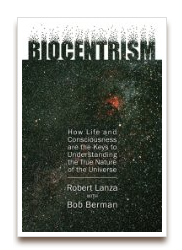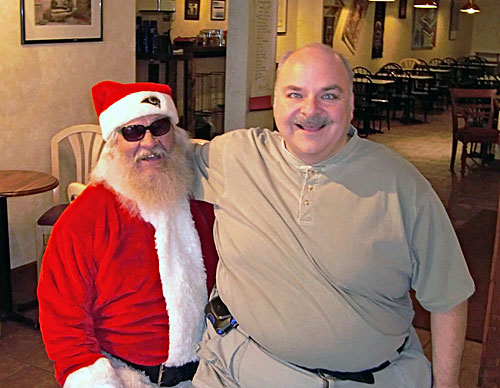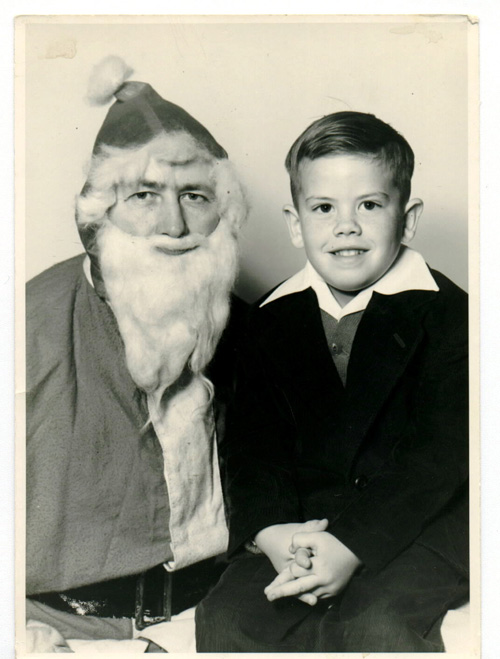Yearly Archives: 2009
Who owns the interview?
I find this a very interesting question, asked and answered by Paul Bradshaw on E-Media Tidbits:
“Some time ago I was interviewed via e-mail for an article and, as I often do, after providing answers to the nine questions, I asked the following: “Mind if I republish these answers in full on my blog after the piece goes live?”
It turned out that the journalist actually did mind. In fact, in the correspondence that followed, the journalist explicitly refused me permission to publish my own answers before changing her mind and saying I could — but without the accompanying questions she had supplied. So who owns the interview?”
The thinking behind the question and Mr. Bradshaw’s post are worth a read for any reporter. And raise another question (in my mind):
Do I need your permission to publish an email you send me? Sure, it might be tacky… but once it hits my in-box, isn’t it mine, to do with as I please? Is there a legal answer to this question?
At a more pragmatic level, shouldn’t I just assume that anything I write and “release into the wild,” can and will wind up online? Are there enough lawyers to stop that?
Note to self: In the unlikely event someone asks to interview me, inform them that I reserve the option of publishing the full interview. If they don’t like that, don’t do the interview.
A thousand people in the street (millions online)
 I’ve been thinking about the disruptive power of the Internet. How it can undermine institutions. The record industry, publishing, and media come to mind. I’m sure I could come up with others if pressed.
I’ve been thinking about the disruptive power of the Internet. How it can undermine institutions. The record industry, publishing, and media come to mind. I’m sure I could come up with others if pressed.
I’m hoping for even more chaos. Clearly, our two party system of government is broken and I’d really like to see some chaos there. Why not three or four or more political parties? Hard to make a case that our government could be less effective than it is.
The Obama campaign really showed the power of the Internet to raise money and coordinate millions of supporters. I hope we see more of that but with the power on our end of the pipes. I have no idea how this can or might come about but the first step has to be sand in the greased gears of our two party system.
Books: 2009
Yes, the list is a little skimpy but this blog will not write itself. I plan to read more fiction in twenty-ten.
- Biocentrism: How Life and Consciousness Are the Keys to Understanding the True Nature of the Universe
- The Chaos Scenario, Bob Garfield
- The Ultimate Happiness Prescription: 7 Keeys to Joy and Enlightenment, Deepak Chopra
- The Lost Symbol, Dan Brown
- The Girl with the Dragon Tattoo, Stieg Larsson
- Free: The Future of a Radical Price, Chris Anderson
- Life Inc: How the World Became a Corporation and How to Take It Back, Douglas Rushkoff
- Road Dogs, Elmore Leonard
- The Increment, David Ignatius
- Wicked Prey, John Sanford
- What Would Google Do?, Jeff Jarvis
- Jesus, Interrupted: Revealing the Hidden Contradictions in the Bible, Bart D. Ehrman
- Grown Up Digital: How the Net Generation is Changing Your World, DonTapscott
- God’s Debris: A Thought Experiment, Scott Adams
“Men whose laps we’d avoid”
Live Radio
Local radio personality Jack Daniels broadcasting live from the Jefferson City Hy-Vee.
The world is not flat?
Until the fifteen hundreds, people knew the earth was flat. But it wasn’t. Everyone was wrong. It probably took a long time for that new reality to sink in. A life time, perhaps? Makes a boy wonder if there are things I believe —I’m talking about the most fundamental things here— that are just wrong. Like, the sun does NOT circle the earth.
How do you wrap your mind around something like that? Your senses tell you one thing, but the reality is something different. Will there be something as jolting as “the earth is round, not flat” in my lifetime? How will I deal with it? Many would —I believe— choose denial. “It’s just not so. Uh uh, no way.”
If I’m just flat out wrong about some fundamental belief, do I want to know the truth. Remember, we’re talking the-world-aint-flat kind of truth here.
I do. As painful and unsettling as it would surely be, I want to know. And then I’ll try to keep it to myself.
“Falsely playing the race card”
A few weeks back I posted a few times on the Heather Ellis trial in Kennett, MO, my home town. The trial and the incident that started the whole thing (3 years ago?) left Kennett with a black eye (so to speak). The local prosecutor recused himself and Morley Swingle –the prosecuting attorney for Cape Girardeau County– took over. In an op-ed piece (?) in today’s St. Louis Post-Dispatch, Mr. Swingle reflects on the trial and the incident that made it necessary:
“On a Saturday night in 2007 at the Wal-Mart in Kennett, Mo., Heather Ellis went into an angry tirade in the checkout line, grabbed another customer’s merchandise and pushed it away from the cash register, not just once, but four times.
When a manager told her to leave the store, she responded, “I’m not leaving and you can’t make me.” The police were called. They escorted her out of the store. Outside, she continued her angry rant. When an officer told her she would be arrested if she did not leave, she replied: “If you try to arrest me I’ll kick your [derriere].”
She was arrested. True to her word, she kicked the arresting officer and smacked another in the mouth, drawing blood.
Most people, after behaving so badly, would issue a few apologies and accept the prosecutor’s generous plea offer of probation to misdemeanor offenses. Instead, Ellis decided to claim to the national media that her arrest was based on “racism.”
Biocentrism
 I’m reading a mind-stretching book. Biocentrism by Robert Lanza (with Bob Berman). I wouldn’t know where to begin describing what this book is about. Like John Sebastian said, “it’s like trying to tell a stranger ’bout rock and roll.”
I’m reading a mind-stretching book. Biocentrism by Robert Lanza (with Bob Berman). I wouldn’t know where to begin describing what this book is about. Like John Sebastian said, “it’s like trying to tell a stranger ’bout rock and roll.”
The authors, however, are very good at explaining the most complex concepts. Here’s a little riff on Time:
“Imagine that existence is like a sound recording. Listening to an old phonograph doesn’t alter the recording itself, and depending on where the needle is placed, you hear a certain piece of music. This is what we call the present. The music, before and after the song now being heard, is what we call the past and the future. Imagine, in like manner, every moment and day enduring in nature always. The record does not go away. All nows (all the songs on the record) exist simultaneously, although we can only experience the world (or the record) piece by piece. We do not experience time in which “Stardust” often plays, because we experience time linearly.”
This book is not for everyone. If you have too much “reality” in you life to think about the possibility it’s all “in your head,” you can take a pass on Biocentrism. But it will get a spot on my nightstand as one of those books I’ll have to read again and again.
Leaving the Information Age
I missed the Agrarian Age and the Industrial Age but have been pretty much in the thick of the Information Age, so I was a little startled to learn that it was over. Or nearly so.
David Wienberger pointed to an essay by Joe Andrieu titled “Leaving the Information Age,” written in September of 2007. It makes a compelling case for the the idea that we’re nearing the end of the Information Age:
“As cable television and the Internet invaded our homes, we began to find that we could satisfy many of our wants and desires through Information rather than physical goods. It was liberating, intoxicating, and led to one of the most outrageous economic bubbles since the heyday of the Industrial Age triggered the Great Depression.
Similarly, the Information Age is, (surpise!), defined by MORE information. More channels. More telephones. More email. More websites. More advertising. More media.
And in a (perhaps) surprisingly short period, we now find ourselves echoing a new version of the mantra that ended the Industrial Age: “Enough! We don’t need so much Information!”
Mr. Andrieu makes the subject of “ages” much more interesting than your junior high history teacher. Well worth the read.


